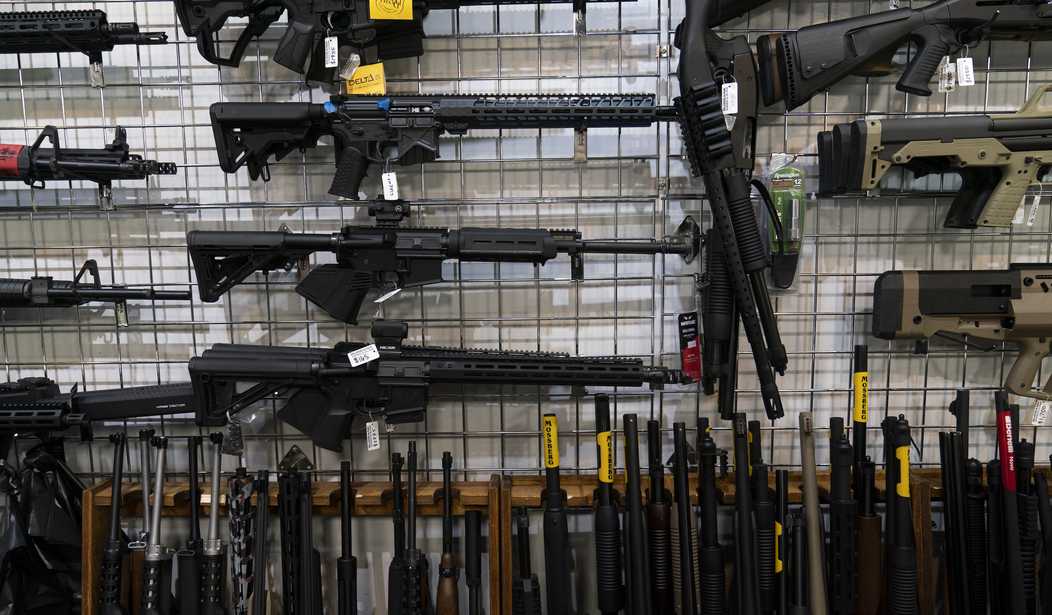Gun control was supposed to be a key issue in this election, and while it wasn't the driving issue for most voters, it was still pushed as an important topic.
Yet, according to the polls, if it were that important, gun control candidates would win hands down. The polls all claim that a massive majority of people want gun control of various kinds. That didn't seem to pan out in the least. We can see that in part based on the "Leaders We Deserve" being handed their collective posteriors anywhere they faced a real challenge, with the only exception being someone who never talked about gun control.
At the Johns Hopkins Bloomberg School of Public Health, they're not thrilled with the outcome of the election, and the cope is strong there.
Common-sense gun laws, such as universal background checks and extreme risk protection orders (ERPOs), continue to stall in Congress and struggle to pass in many states—even though most Americans support these policies: Over 80% support universal background checks, and about 70% support ERPOs.
So why is gun policy so out of step with the preferences of most Americans?
Silvia Villarreal, MPP, director of research translation at the Johns Hopkins Center for Gun Violence Solutions, says that today, the support of the majority of the population, including most gun owners, is being drowned out by a highly organized and committed group spurred by a powerful gun lobby that perpetuates the myths that owning guns makes people safer and that common-sense gun laws threaten Second Amendment rights.
The fact that they keep using the term "common sense" for these anti-gun proposals just tells you where their priorities are, not that we needed to figure it out. Bloomberg's name is on the school, for crying out loud. We know what the agenda is.
Here, they invoke the "powerful gun lobby" for their disdain. However, the gun rights lobby can only do so much. Lawmakers are going to respond to voters or else find themselves out of a job. As we can see from the election results, that's simply not what happened.
But that's not the entirety of the cope.
You see, those of us who value our right to keep and bear arms are only really a small percentage of the population, according to them--they rely on polling for that, but fail to think about the people who simply won't answer such a question honestly after people like the folks at Johns Hopkins demonized them for decades--we're just a strong voting block.
That small proportion of Americans who own the lion’s share of guns make up a powerful voting bloc.
Many gun owners view firearms as a key part of their identity, and cast their votes based on that issue alone, says Villareal.“Lobby groups and the gun industry have a really powerful way to organize people to vote on these issues,” by perpetuating the ideas that gun policies threaten Second Amendment rights and that guns make people safer. “There's a very organized group supported by a powerful gun lobby that shifts how elections turn out,” says Villarreal.
Wow.
That's weapons-grade cope.
In other words, we turned out and voted for the issues that matter to us, and the gun grabbers didn't.
It's almost like all that polling support was, at most, people who thought it might be a good idea if they did it, but don't care enough to actually vote that way.
Why should lawmakers care if lukewarm support won't benefit them?
The supposedly small percentage of gun rights voters do think it matters, in part because it's a handy litmus test for politicians to get an idea of how they'll address issues that haven't come up yet. We tend to vote for gun rights supporters because we figure they'll be better on other issues. Plus, our gun rights actually matter to us and we don't want to open the door to still more regulation, which we all know would be coming.
The problem gun grabbers have is that people who support those policies don't care enough to let it guide their votes. That is, unfortunately for them, how politics works. Politicians are going to focus on the issues that they can win on. Why else would a confirmed gun-grabber like Kamala Harris who has a history of advocating for complete bans on different types of firearms suddenly make a thing about supporting gun rights except for a few small things like red flag laws and a ban on new so-called assault weapons?
It's because she was trying to nerf the anti-gun opposition, because we actually care about the issue enough to vote accordingly.
Don't like it? Tough.
Cope and seethe while we laugh at you.








Join the conversation as a VIP Member